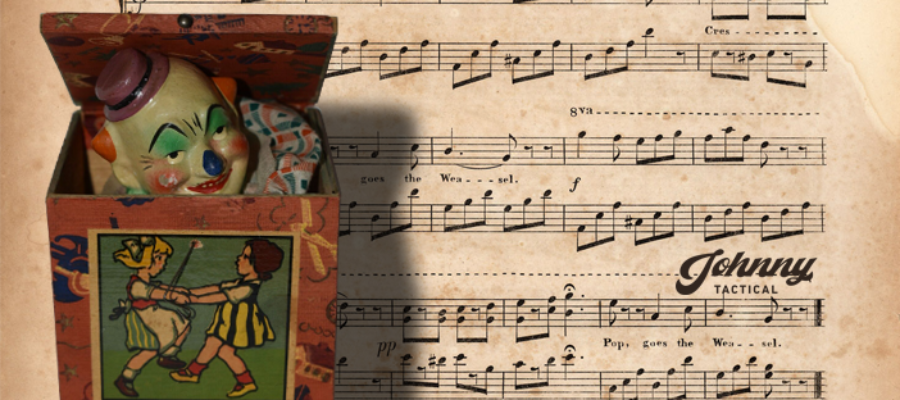When it comes to tactics, it’s better to be disappointed than surprised.
I don’t know about you, but I hate surprises. I don’t like surprise parties, surprise bills, surprise car repairs, surprise sinkholes in the driveway, or … I’ll stop there because I’m starting to get depressed. The bottom line is that I like to know what’s coming. I’m a planner by nature, but more than that, I like to anticipate possibilities so that I can mentally prepare and develop other options. I’m not special or psychotic — at least I don’t think so — that’s just the way I’m wired.
Good Thing I Watched TV
Admittedly, there are good surprises, like winning a million dollars or waking up with a full head of hair. I wouldn’t turn those things away or poo-poo them with my nose in the air, trust me. But the thing about surprises is that they induce panic, shock, confusion, or disbelief. In tactical terms, surprises disrupt your OODA loop¹ and put you at a disadvantage.
I’ve seen enough episodes of America’s Funniest Videos to know that surprises freak people out — they instantly have no idea what’s going on or what to do. Like when a guy’s co-worker drops a giant rubber spider on his head from the warehouse rafters or when grandma finds out she’s going to be a grandma. It doesn’t matter if the surprise is good or bad, the surprise is temporarily debilitating until their logical brain processes the information and catches up with their survival brain.
The Opposite of Surprise
Now, imagine if the warehouse worker told his buddy, “Hey Chuck, stand on that X over there and I’ll lower a rubber spider onto your head while I record it.” Chuck would then expect the spider and in turn, not be surprised, and we’d never know about it because the video would be lame and never would have made it onto TV or Youtube. If Chuck anticipates the event, by definition, he is not surprised and he’s able to effectively and efficiently process the event as it unfolds.
To further build on this idea, here’s an experiment you can do at home. Ask your kids if they want ice cream for dinner, watch them get excited, and then say, “Just kidding!” as you serve them lima beans. Watch the disappointment wash over their little faces as you spoon the planet’s most unappealing vegetable onto their plates. Remember, you don’t have to feel bad, it was all in the name of science.
Jedi Mind Trick
When we are clearing rooms, if we anticipate an encounter with the bad guy like Chuck anticipated the spider, we won’t be surprised when we find him. And on the contrary, we’ll be disappointed when we find the room empty like your kids getting lima beans when they were expecting ice cream. That’s the kind of mindset we should be aiming for when we are clearing rooms.
Why? Because surprise induces panic, shock, confusion, or disbelief, none of which are beneficial to your safety as an officer, your effectiveness as an operator, or your accuracy as a shooter.
Anticipation is the Jedi mind trick to induce calm in the face of danger and to close your OODA loop from the interruption of surprise. Anticipation is the result of an active mind, one that runs through scenarios, calculates probabilities, and rehearses reactions and solutions to give you the tactical advantage in a given situation.
How It Works
For example, if I have to clear a house to render it safe or to find the bad guy, I tell myself, “He’s in here,” as I cross the threshold. I continue to do that for each and every room I enter. This does two things: One, it prepares my mind for the inevitable encounter, keeping me mentally sharp, avoiding wandering thoughts or carelessness. And two, as I read each room it helps me do a better job searching it, focus on where the threat is likely to come from, and how I will handle it if it does.
It has been an invaluable tool for someone like me who tends to space out (mind wandering) during periods of boredom, even at active scenes, and helps me mentally rehearse tactics to keep them fresh in my mind so they are there when I need them.
That Guy
We’ve all met the cop who thinks nothing bad is ever going to happen to him and is sloppy or careless with his officer safety. This is probably the same guy who screams on the radio, can’t make decisions, or panics under stress. Don’t be that guy. This one simple mental trick can keep you from becoming him and keep you coming home at the end of your shift. It is far better to be disappointed that you didn’t find the bad guy than to be panic stricken when you do.
__________________________
- Do you find that you are more often surprised by things or see them coming?
- Do you suffer from mind-wander at prolonged scenes?
- Have you let your officer safety go over the years?
- How can you use this technique during routine calls and traffic stops?
__________________________
Thanks for reading! Do you have a story that you think we could learn from and that you’d like to share with Johnny Tactical nation? Fill out the contact form and include your name, rank, and department, or email it to [email protected] and follow these guidelines:
– It must be a firsthand account
– True
– Have a lesson, principle, or tactic to apply
– Cleaned of names, dates, and places
– Include your call sign
If your story is selected and published in our blog you’ll get the credit using your call sign and we’ll send you a free Live Tactical t-shirt!
__________________________
¹OODA Loop – An acronym coined by US Air Force Colonel John Boyd which describes the decision making cycle, or loop, and stands for Observe, Orient, Decide, Act.





Leave a Reply
Your email is safe with us.
You must be logged in to post a comment.